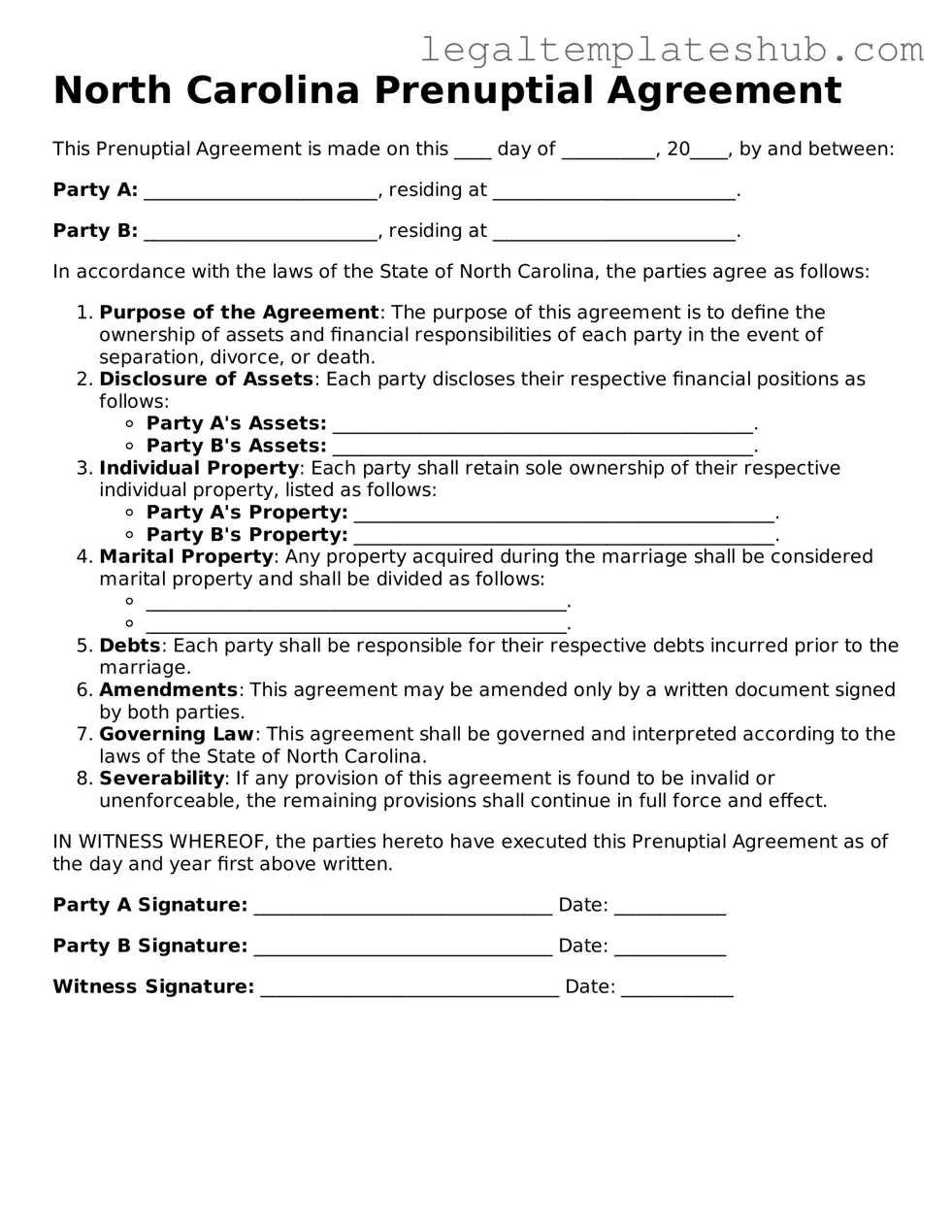Printable Prenuptial Agreement Document for North Carolina
A Prenuptial Agreement is a legal document that couples create before marriage to outline the division of assets and responsibilities in the event of divorce or separation. In North Carolina, this form serves to protect both parties' interests and clarify financial matters. Understanding its importance can pave the way for a more secure future together.
Ready to take the next step? Fill out the form by clicking the button below.
Access Editor
